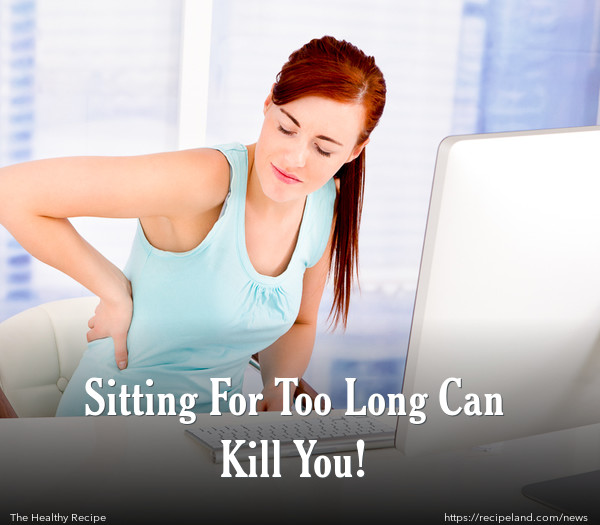Research is showing that excessive sitting can be very harmful to your health, even if you are exercising regularly. Find out how to get more physical activity into your day and counteract the effects of sitting.
By now, everyone realizes that exercise is generally good for your health. But, too many people are spending too much time being sedentary—sitting at a desk, watching television, surfing the internet, etc.
Research has suggested that the average adult in the United States spends nearly 60% of their time being sedentary—during the time they are awake!
For centuries, humans had to rely on their physical skills in order to survive—hunting, gathering, building shelter, etc., burned a lot of calories. Today, we often just sit. Unless we decide to actively change our lifestyle by adding in “exercise” as a way to combat the sedentary habits.
Unfortunately, there can be some serious negative side effects to spending too much time sitting around. Not only are you more likely to gain weight when you spend too much time sitting still, but research has shown that your body composition can actually change—for the worse.
You are more likely to have less lipoprotein lipase (LPL), which is an enzyme that assists the body with fat burning. You are more likely to develop cardiovascular disease or diabetes. You will be at a higher risk for developing osteoporosis, because your bone mineral density will decrease and no new bone will be forming. This will place you at a very high risk for fractures.
Your arteries will become smaller, as the diameter decreases, which will, in turn, increase your blood pressure and make it more likely that you could develop heart disease.
As if these reasons are not enough! There have been recent studies that have correlated early death with excess sitting time. The studies found that the actual sitting—not the other risk factors like obesity, heart disease, high cholesterol, smoking or diet—contributed significantly to the early death.
Is exercise enough to combat a sedentary lifestyle when you are not actively exercising? Unfortunately, even if you are getting the recommended amount of daily exercise (e.g., at least 30 minutes per day of cardio activity, at least 5 times per week), sitting for too long can still bring on serious health risks. You could be considered to be an “active couch potato!”
A recent large scale study was conducted, involving more than 100,000 adults in the United States. Results showed that those adults who spent greater than 6 hours per day sitting were 40% more likely to die during the next 15 years than those who remained more active throughout the entire day.
The effects of sitting were significant, even for those who exercised regularly, according to the recommended guidelines.
Surprisingly, even people who exercised at a high level, such as those who ran marathons, were still susceptible to the harmful effects of sitting, because they were even more likely to spend excess time sitting when they were not actively exercising. These active exercisers often assume that their physical fitness protected them from the harmful effects of sitting, but it turns out that this is not the case.
Active couch potatoes are very common! If you work at an office job, if you spend a long time commuting, or if you enjoy relaxing for a few hours in the evening watching television, you are probably spending more time sitting than you may even realize. There are definite consequences to excessive sitting.
So, how can you counteract the effects of sitting too much? Well, for starters, you have to integrate more movement into your day, as a habit. This means that you need to fit in activity that does not necessarily fit into the category of formal exercise. This is how you can basically begin to act more like our human ancestors, who moved frequently throughout their entire day.
To integrate more movement into your day, here are some great suggestions:
Each of these suggestions can help to add activity to your day, and help to minimize the effects of sitting for long periods of time. Work them into your day for better overall health, and live longer!
SOURCES: https://www.huffingtonpost.com/chris-kresser/sitting-health_b_2897289.html; https://www.mayoclinic.org/healthy-living/adult-health/expert-answers/sitting/faq-20058005










Comments